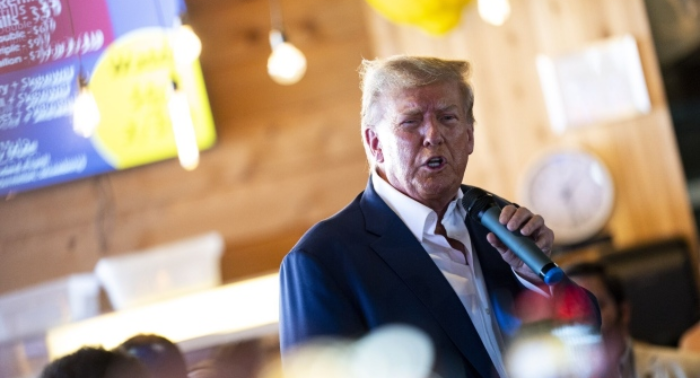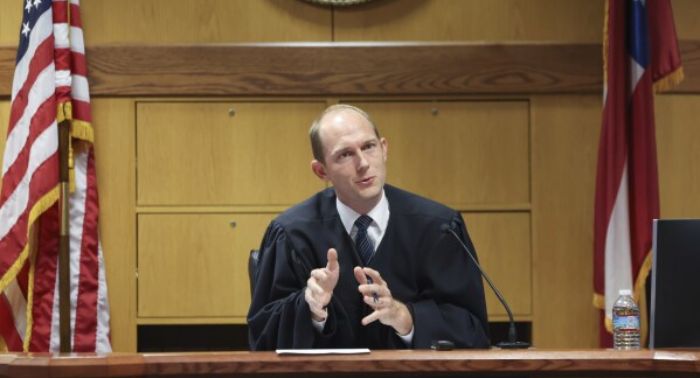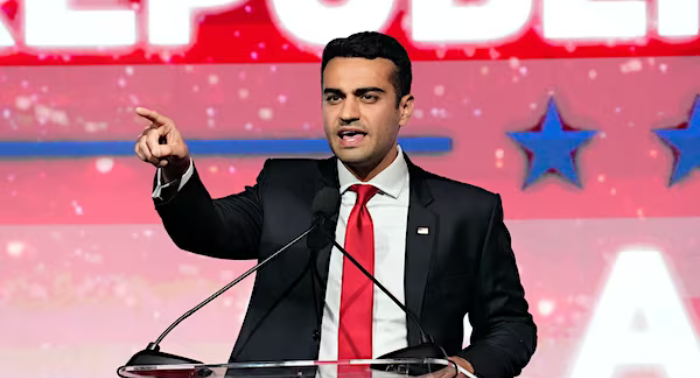At a cursory glance, the recent spate of Donald Trump rallies in Iowa mirrors those from his 2016 campaign where he was edged out in the state: a sea of avid supporters reveling in his spirited speeches.
Yet, that’s where parallels draw to a close. Unlike in 2016, when he was outpaced by Senator Ted Cruz’s organizational prowess and failed to secure a win in Iowa’s primary Republican presidential nomination round, Trump now showcases a vastly improved strategy focusing on accumulating and processing voter data for conversion into ballots.
The game is intense: A convincing victory for Trump in the January 15th contest could signal his almost certain securing of the Republican nomination for 2024.
Conversations with close to 40 Republican insiders, Trump’s team, and grassroots workers in Iowa shed light on how he’s evolved since his prior slip-ups. Previously in 2016, Trump, skeptical of his chances in Iowa, kept a minimal team in place. Though he later secured both the nomination and presidency, this minimalist strategy did come at a cost.
Jeff Kaufmann, head of the Iowa Republican Party, observed, “Many don’t realize the extent of its bare-bones nature in 2016. Compared to now, the present effort is exponentially larger.”
This Sunday, Trump is gearing up for another gathering in Sioux City, marking his eighth in just over four weeks. Beyond merely ramping up excitement, these well-attended rallies function as touchpoints to identify prospective voters and initiate dialogues.
Rachel Paine Caufield, a political science scholar at Drake University, pointed out the importance of such groundwork. “Given that Iowa’s caucus system encompasses over 1,600 local gatherings across the state, this targeted list-building has significant impact,” she mentioned.
While Trump zeroes in on the more densely populated areas, his primary competitor, Florida’s Governor Ron DeSantis, emulates Cruz’s 2016 approach by tapping into rural regions. But Alex Latcham, Trump’s early-state strategist, notes a distinct edge for Trump. He has been collecting voter insights from prior rallies and also from online donations and website visits. “These touchpoints help us identify and mobilize our supporters,” Latcham highlighted.
For instance, Ann Jones, a first-time caucus participant, was recently recruited at a Trump event. Now, unlike in 2016, the campaign has the infrastructure to harness such leads, ensuring enthusiasts like Jones are engaged and brought to the caucus.
This proactive approach is echoed by Marshall Moreau, the campaign’s state chief, emphasizing the need to constantly communicate with potential voters.
In a recent push, post a rally in Clive, the team quickly updated their database with the newest caucus commitment forms. Their objective? Reach out to these individuals promptly, ideally within two days, through various communication channels.
The Trump campaign may trail the DeSantis-backed political action committee, Never Back Down, in sheer numbers, but they believe their recruits, being native Iowans, bring more passion to the table.
Cris Christenson, a local entrepreneur and Trump volunteer, stresses the need for motivation, saying, “DeSantis has resources and ambition, but our dedication should be unmatched.”
While DeSantis is heavily investing in advertisements and staff relocations to Iowa, recent polls place him significantly behind Trump.
Trump, too, has augmented his Iowa operations. Notably, he’s recently on-boarded a specialist to liaise with religious leaders, considering evangelicals formed a significant chunk of Republican caucus-goers in 2016. Despite Trump’s recent controversial remarks about DeSantis’ abortion ban move in Florida, his popularity remains largely unscathed.
Jonah Jones, an attendee at the Adel rally, sums up the sentiment: “He’s rooted in virtuous values, has a deep love for the country and its people. Supporting him is an obvious choice for me.”




